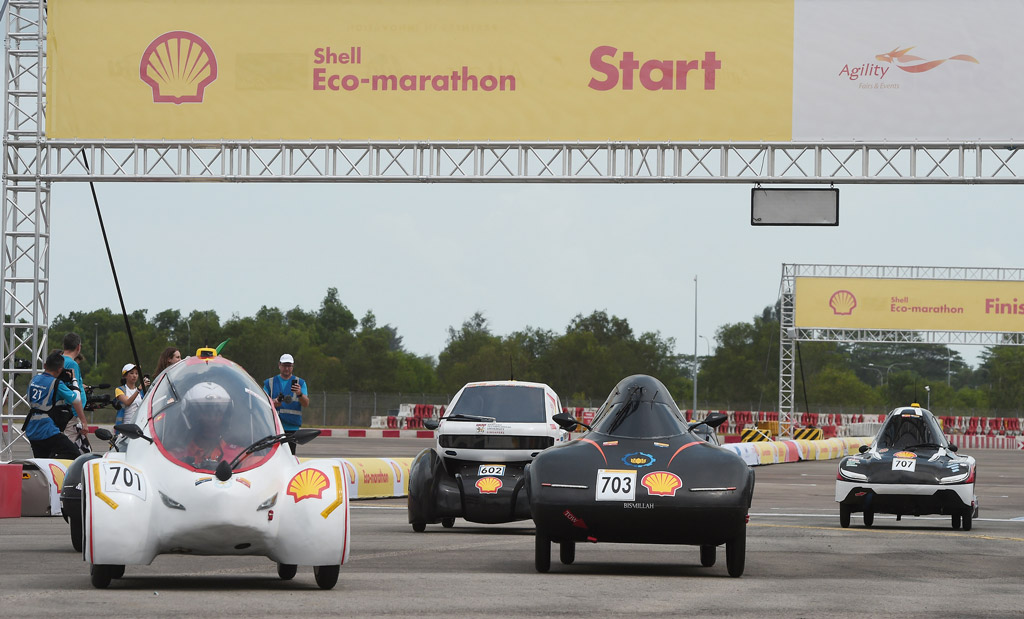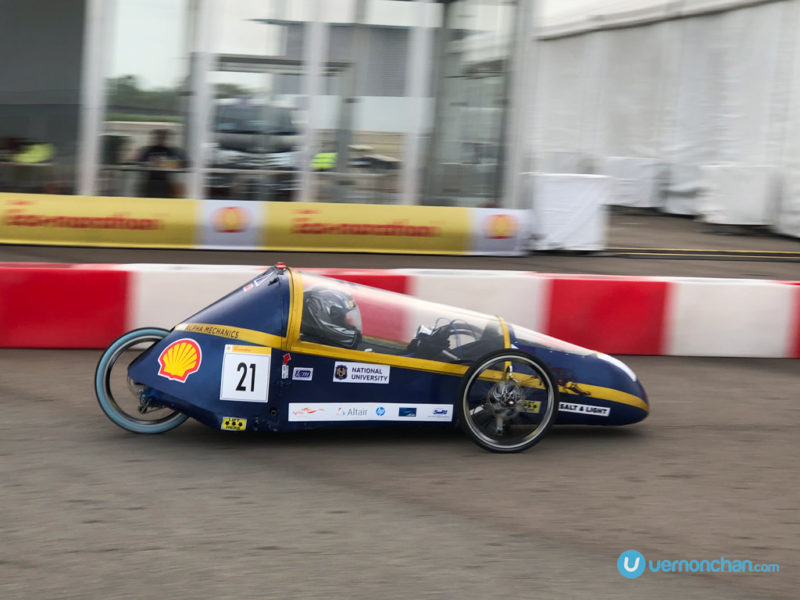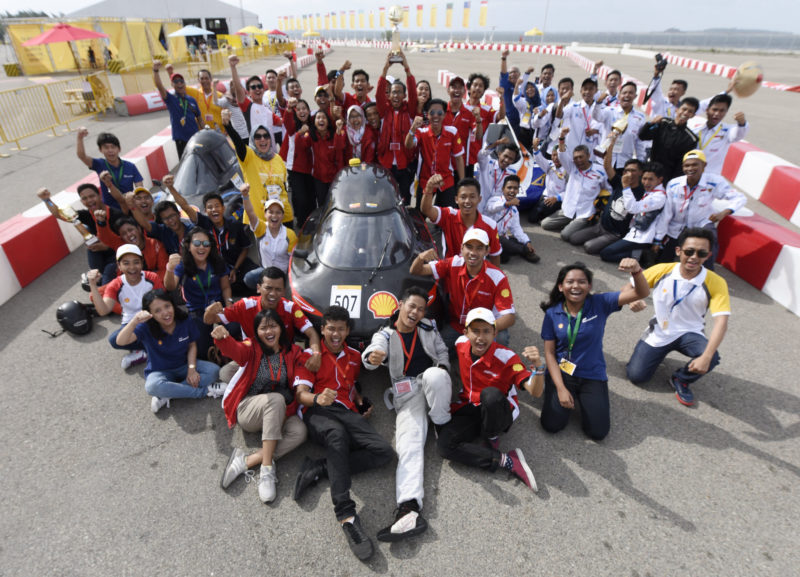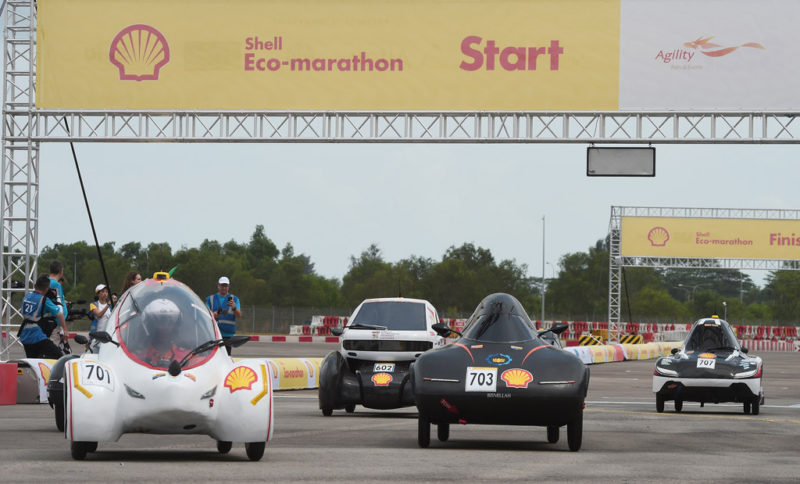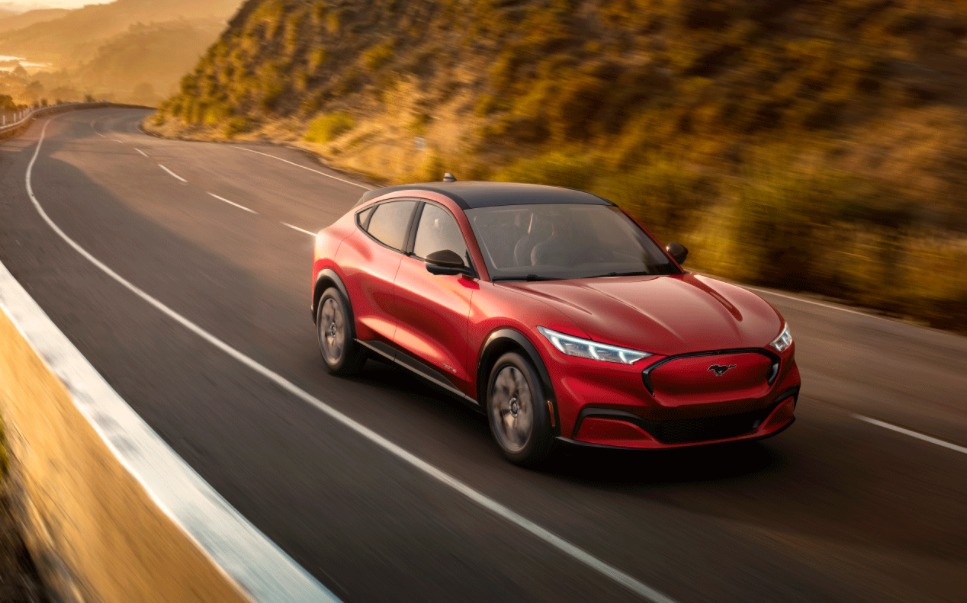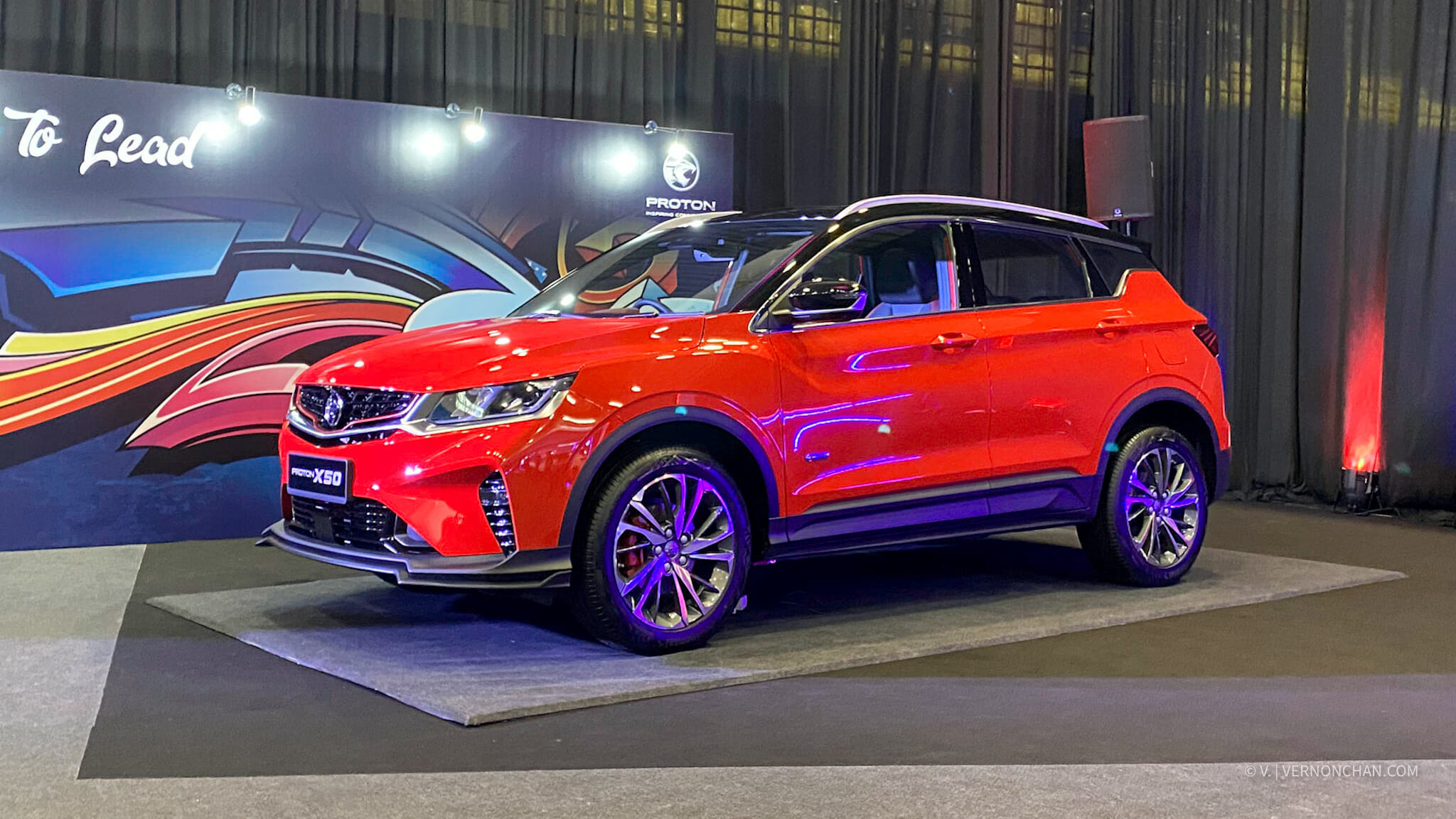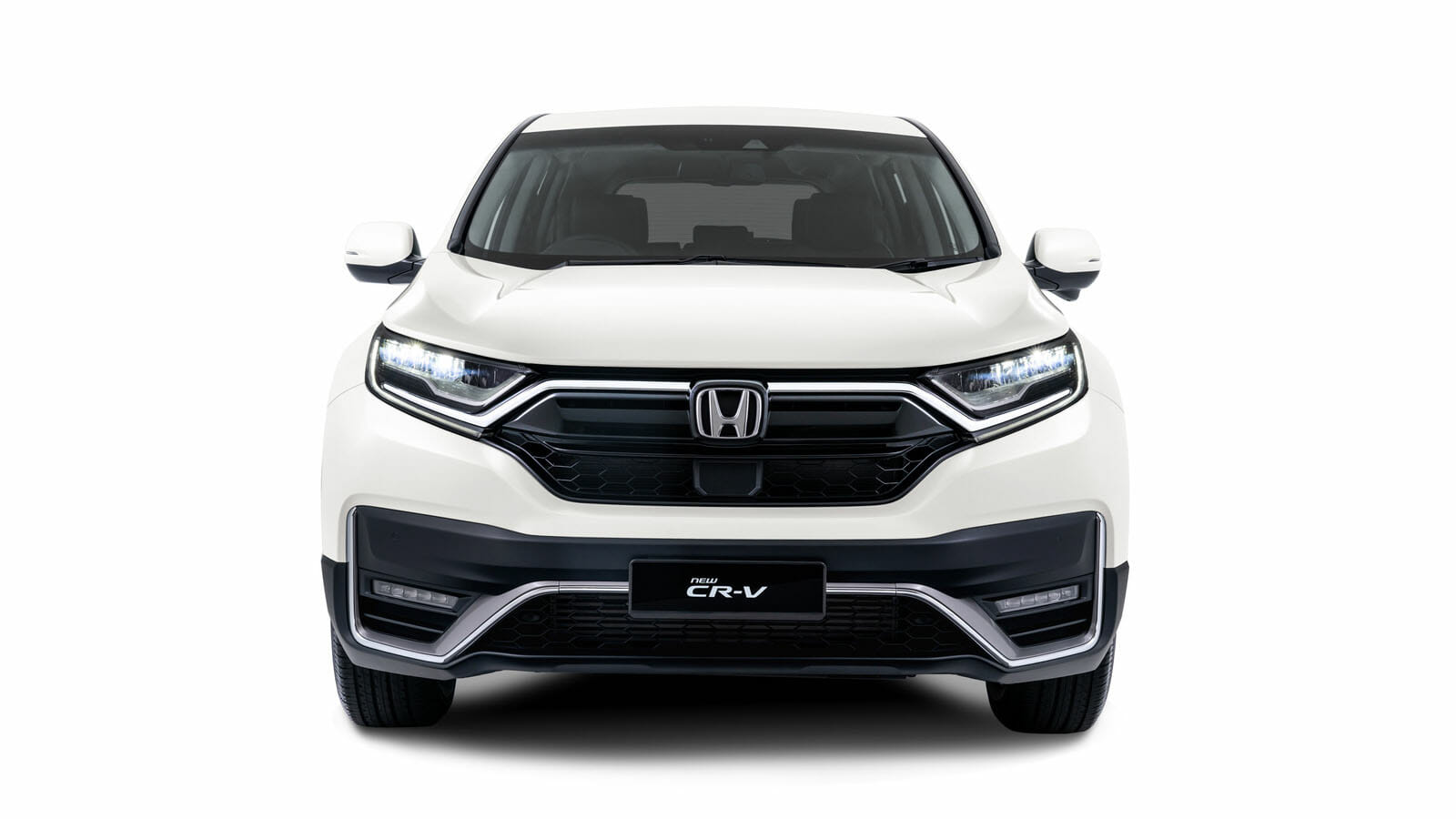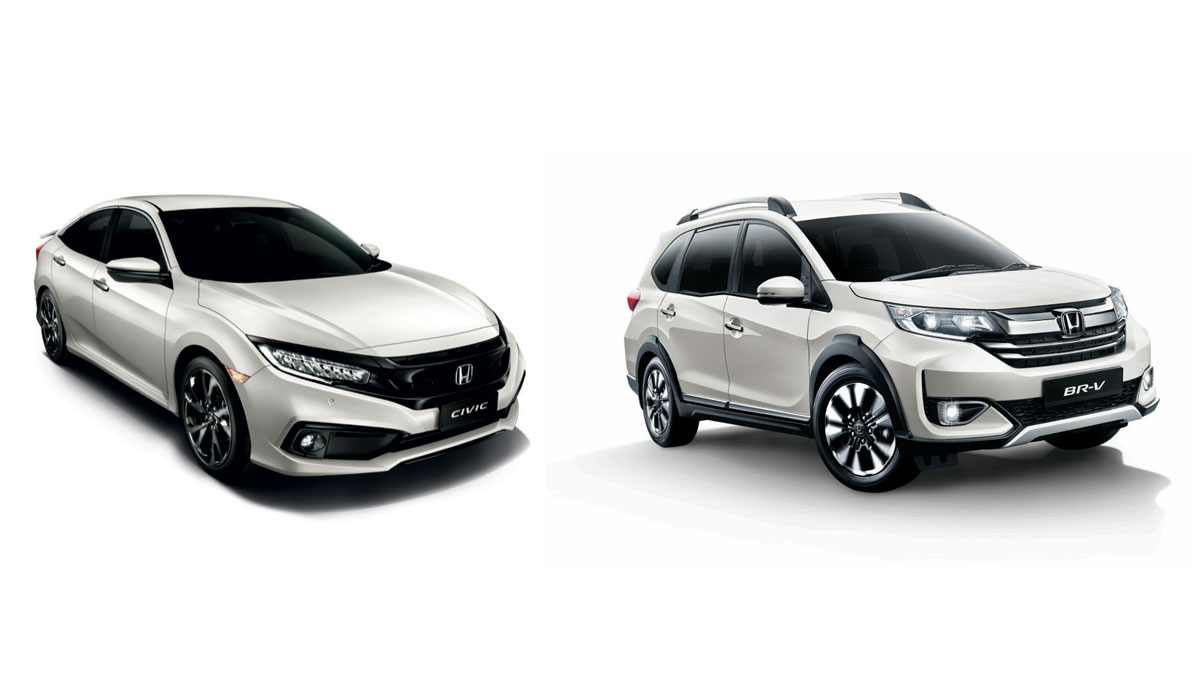Shell’s Make the Future bright ideas and innovation festival came to a close yesterday. Thousands thronged the four-day showcase hosted in Singapore for the second time. Headlining the exciting festival was Shell Eco-marathon Asia, where over 120 student teams from 18 countries across Asia Pacific and the Middle East pitted to see whose vehicles are the most energy efficient.
Student teams competed in the UrbanConcept and Prototype categories, with vehicles powered by various energy sources. Learn more about the two different types of vehicles here.
All vehicles go through a stringent 190-point technical inspection before they are allowed to make runs on the 1.19km purpose-built track.
This year saw an encouraging rise in the number of UrbanConcept vehicles, and for the first time exceeded the number of Prototype vehicles. There were many familiar faces and teams in the competition, but also plenty of new faces competing for the very first time.
Singapore’s impressive show
Singapore’s representation in the competition was the biggest the country has fielded so far, with 10 futuristic cars from seven tertiary institutions. This included the high-profile NTU Singapore 3D-Printed Car from Nanyang Technological University and first time entrants TP ECO FLASH from Temasek Polytechnic.
And they were big winners too. The Nanyang Technological University team won the UrbanConcept – Hydrogen category, Temasek Polytechnic’s TP ECO FLASH grabbed top spot in the Prototype – Hydrogen category, and Ngee Ann Polytechnic’s H2GO was first runner-up in the Prototype – Hydrogen category.
It’s encouraging to see more alternative fuels being used in competition vehicles, specifically hydrogen and battery-electric.
Indonesian dominance
Conventional internal combustion engine (ICE) cars still rule the roost, however. Indonesia again showed their dominance in the UrbanConcept category, with ITS Team 2 from Institute Teknologi Sepuluh Nopember (Indonesia) taking top spot.
The team went on to compete in the Drivers’ World Championship Asia heats, ending its run with an impressive podium finish behind compatriots Semar Urban UGM Indonesia. Indonesian teams completed a clean sweap on the podium at DWC Asia.
Meanwhile, Lac Hong University’s LH-EST team from Vietnam stamped their supremacy in the Battery-Electric class.
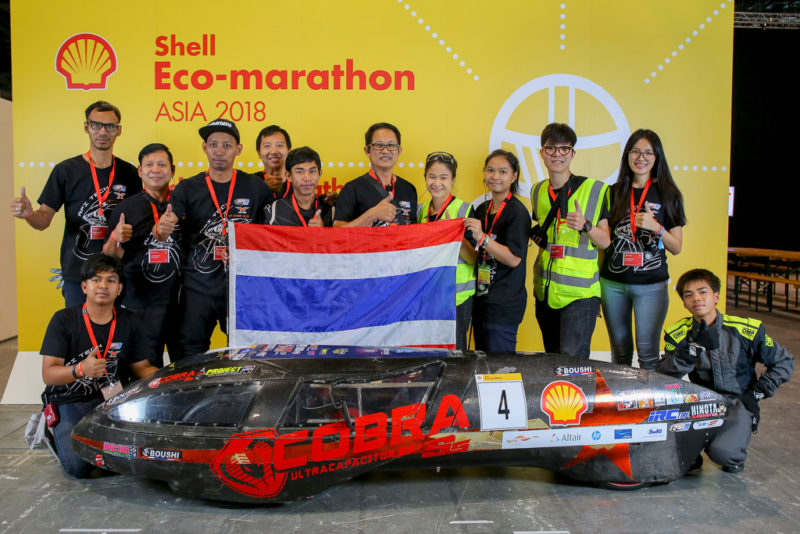
Record-breaking feat
Undeniably, nothing can compare to Panjavidhya Technological College’s Panjavidhya1 team from Thailand competing in the Prototype category. They broke last year’s competition mileage record of 2,288.9km/L with an astonishing 2,341.1km/L run.
Other winners include Huaqi-EV from Guangzhou College of South China University of Technology (China) topping the Battery-Electric class, and aforementioned TP ECO Flash in the Hydrogen Fuel Cell class.
Malaysia boleh
This time around, Malaysia fielded seven teams comprising 115 students from six universities. With the absence of four-time champions in the Prototype Hydrogen category–UiTM Eco-Sprint from UiTM Shah Alam, the torch was passed to Team UiTM Eco-Planet, who competed in the UrbanConcept category.
Other institutions included University Malaysia Pahang (UMP), University of Malaya, Multimedia University Melaka Campus, Monash University, and Universitiy Tunku Abdul Rahman.
2018 Shell Eco-marathon Asia Full Results
PROTOTYPE
| Category | Winner | Result |
| Internal Combustion Engine | Panjavidhya1
Panjavidhya Technological College (Thailand) |
2,341.1 km/l |
| Battery Electric | Huaqi-EV
Guangzhou College of South China University of Technology (China) |
511.0 km/kWh |
| Hydrogen Fuel Cell | TP ECO FLASH
Temasek Polytechnic (Singapore) |
404.3 km/m3 |
URBANCONCEPT
| Category | Winner | Result |
| Internal Combustion Engine | ITS Team 2
Institut Teknologi Sepuluh Nopember (Indonesia) |
314.5 km/l |
| Battery Electric | LH – EST
Lac Hong University (Vietnam) |
129.3 km/kWh |
| Hydrogen Fuel Cell | NTU Singapore 3D-Printed Car
Nanyang Technological University (Singapore) |
46.0 km/m3 |
DRIVERS’ WORLD CHAMPIONSHIP ASIA
| Podium Finish | Team | Country |
| 1st | SEMAR URBAN UGM INDONESIA
Universitas Gadjah Mada |
Indonesia |
| 2nd | ITS Team 2
Institut Teknologi Sepuluh Nopember |
Indonesia |
| 3rd | GARUDA UNY ECO TEAM
Universitas Negeri Yogyakarta |
Indonesia |
It’s not all about racing and on-track action, though. Students are also recognised for their communications, technical innovation, design, safety, teamwork and perseverance.
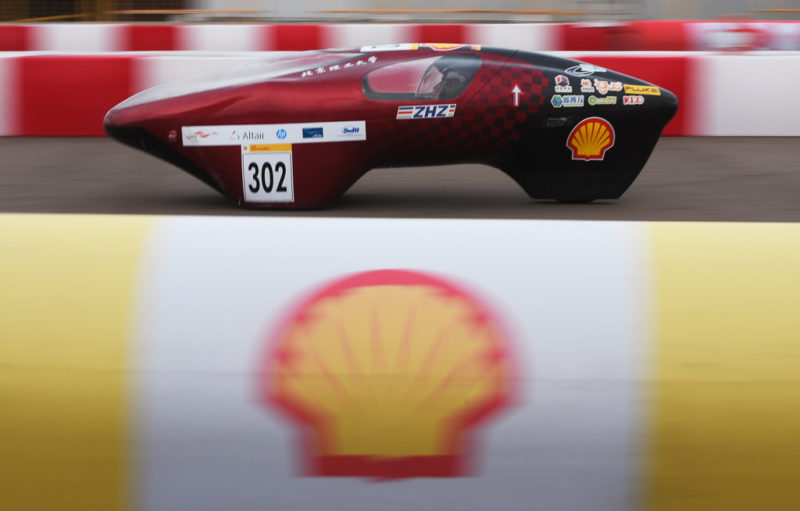
2018 Shell Eco-marathon Asia Off-track Awards
Communications Award
520 DTU Supermileage | Delhi Technological University, India
The team’s well-planned communication strategy took a data-driven approach that led to extensive publicity for the team and for Shell Eco-marathon Asia. Their creative use of social media influencers also helped simplify and drive home the competition and energy-efficiency message to the public. They also involved stakeholders like a Deputy Chief Minister as well as well-known female motorcycle racers to help amplify their messages.
Technical Innovation Award
Team EnduroKiwis | University of Canterbury, New Zealand
3D printing of various vehicle parts has been around for a number of years, but this team has taken a holistic approach to designing and printing the complete engine in a way that is not only optimised for efficient production of the printed parts, but also for optimised engine fuel efficiency.
Vehicle Design (Prototype) Award
Team Huaqi-EV | Guangzhou College of South China University of Technology, China
Team HuaQi-EV produced a slim, tightly-packaged and compact car. Its slender proportions and streamlined shape helped to put an attractive face to efficiency. The eye-catching car featured small wheels to reduce the frontal area of their car and keep its overall size and weight down. This “less is more” mentality was highly effective on the track and encouraged the students to focus on innovative ways to balance out competing needs such as vehicle strength, weight reduction and space requirements. The team’s body-on-frame design also helped to produce a relatively low-cost car.
Vehicle Design (UrbanConcept) Award
Team ZEAL ECO-POWER URBAN | Tongji University, China
The car featured clear focus on weight reduction, fuel efficiency through optimising the design for air resistance, friction, a simple and effective design for door hinges and closers, and the integration of systems. The team also showed effective use of tools for virtual design development. It was an excellent job of translating the design process into a well-made final product.
Safety Award
Team GARUDA UNY ECO TEAM | Universitas Negeri Yogyakarta, Indonesia
Safety was evidently ingrained in every member of the team – their behaviour and collaboration on track and in the paddocks reflected an integral approach encompassing workplace and environmental safety and safety of the car. The team went beyond conventional safety simulations and instead used physical experiments (e.g. using a hydraulic press) to test their design and modified the vehicle design and materials based on their test results.
Perseverance and Spirit of the Event Award
NUST Eco-motive | National University of Sciences and Technology, Pakistan
When it became clear on Friday night that the team would not pass technical inspection on time, the team gave away their engine to a team who desperately needed one. They also gave away their tyres, battery and other vehicle parts to help about 20 other competing teams and shared their facilities and tools with others. This demonstrated the true spirit of the competition.
Most Innovative Hydrogen Newcomer
H2GO | Ngee Ann Polytechnic, Singapore
The team managed to achieve optimum balance of technical quality despite the challenges associated with this energy source. The team also successfully drove train efficiency and aced concept innovation with the light-weight, aerodynamic body. The team walks away with a specially designed sculpture and US$1,200.
Source: Shell | More official photos at www.flickr.com/photos/shell_eco-marathon/
Make the Future
Shell Eco-marathon and Drivers’ World Championship are part of Make the Future, a festival of ideas and innovations for Asia, providing a platform for innovation, collaboration and conversation about the global energy challenge.
Read more about Make the Future here.
For more information on Make the Future Singapore, please visit http://sg.makethefuture.shell.
Follow me for updates
For on-the-ground updates, follow me at vernonchan.com/cars/makethefuture, as well as on Facebook, Twitter and Instagram.
#MTFS2018 #makethefuture #shellecomarathon #SEMA2018 #VCSEMA2018


